Home of UT
Materials Science and
Engineering
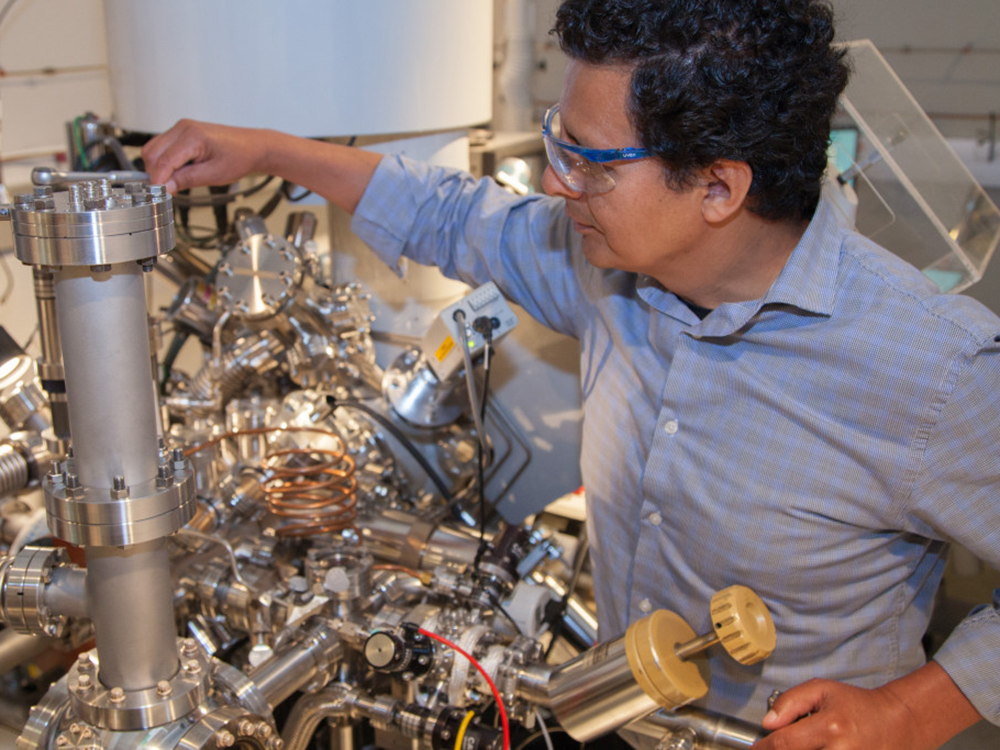
Core Faculty
TMI's core faculty lead cutting-edge research by running their grants through the institute, fostering collaboration and resource sharing.
Learn More
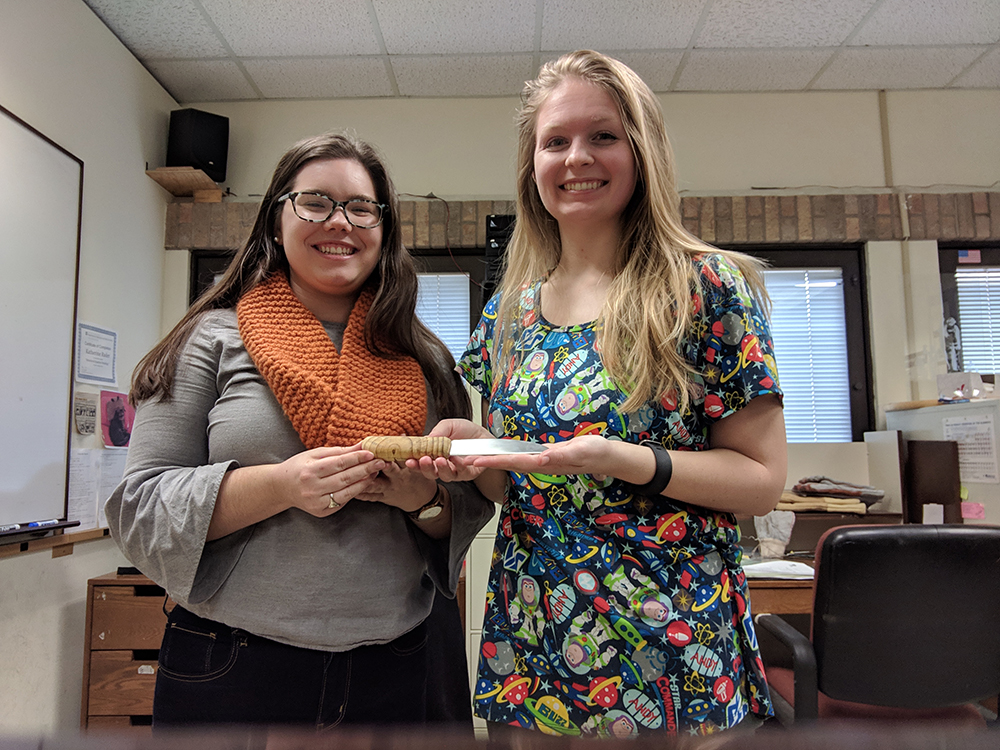
Graduate Program
Our Materials Science and Engineering program is one of the best in the nation, and our graduates go on to be leaders in their fields.
Learn More
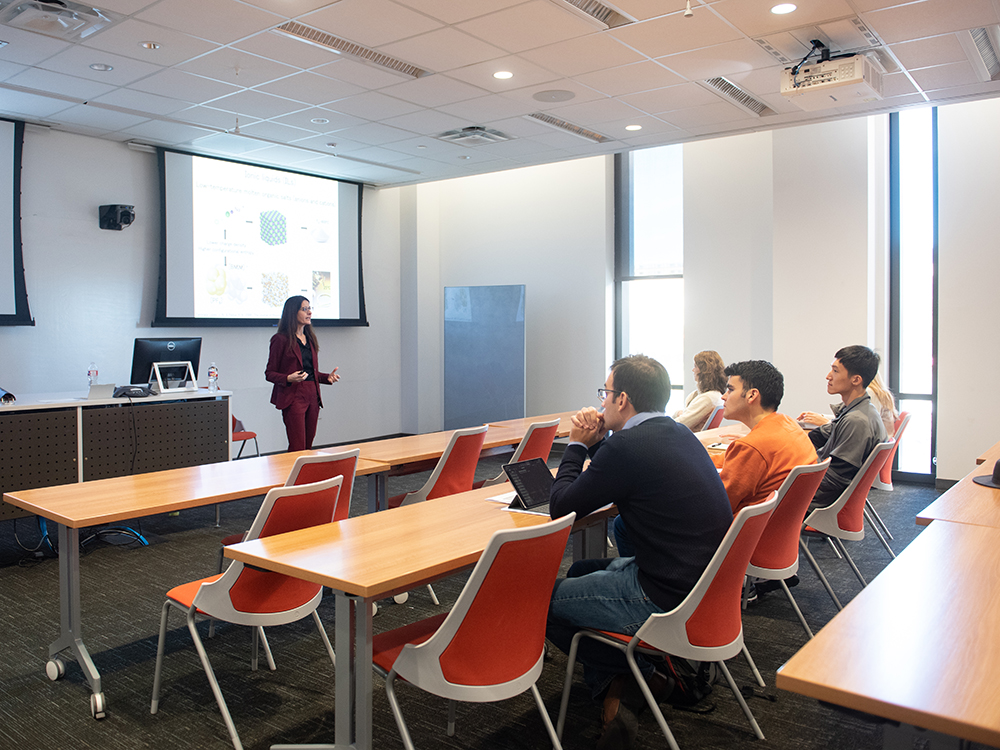
Research
TMI supports interdisciplinary research at UT Austin, with over 100 faculty focusing on clean energy, nanotechnology, and advanced materials using our state-of-the-art facilities.
Learn More
Home
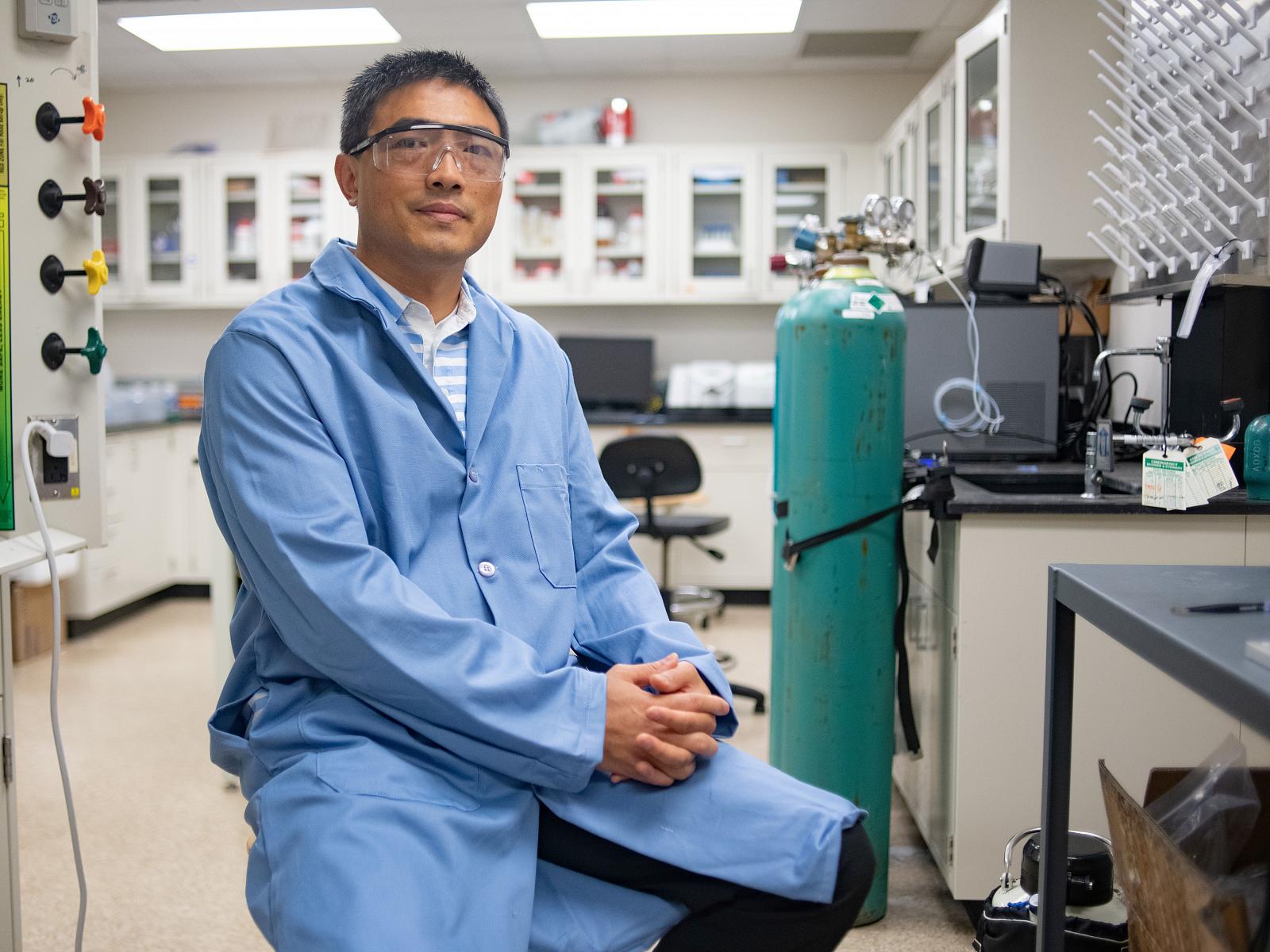
Texas Engineer Recognized for Creating More Sustainable Fertilizer
An international research team co-led by Texas Engineer Guihua Yu won the Royal Society of Chemistry’s (RSC) prestigious Materials Chemistry Horizon Prize, an award celebrating groundbreaking developments which push the boundaries of science.
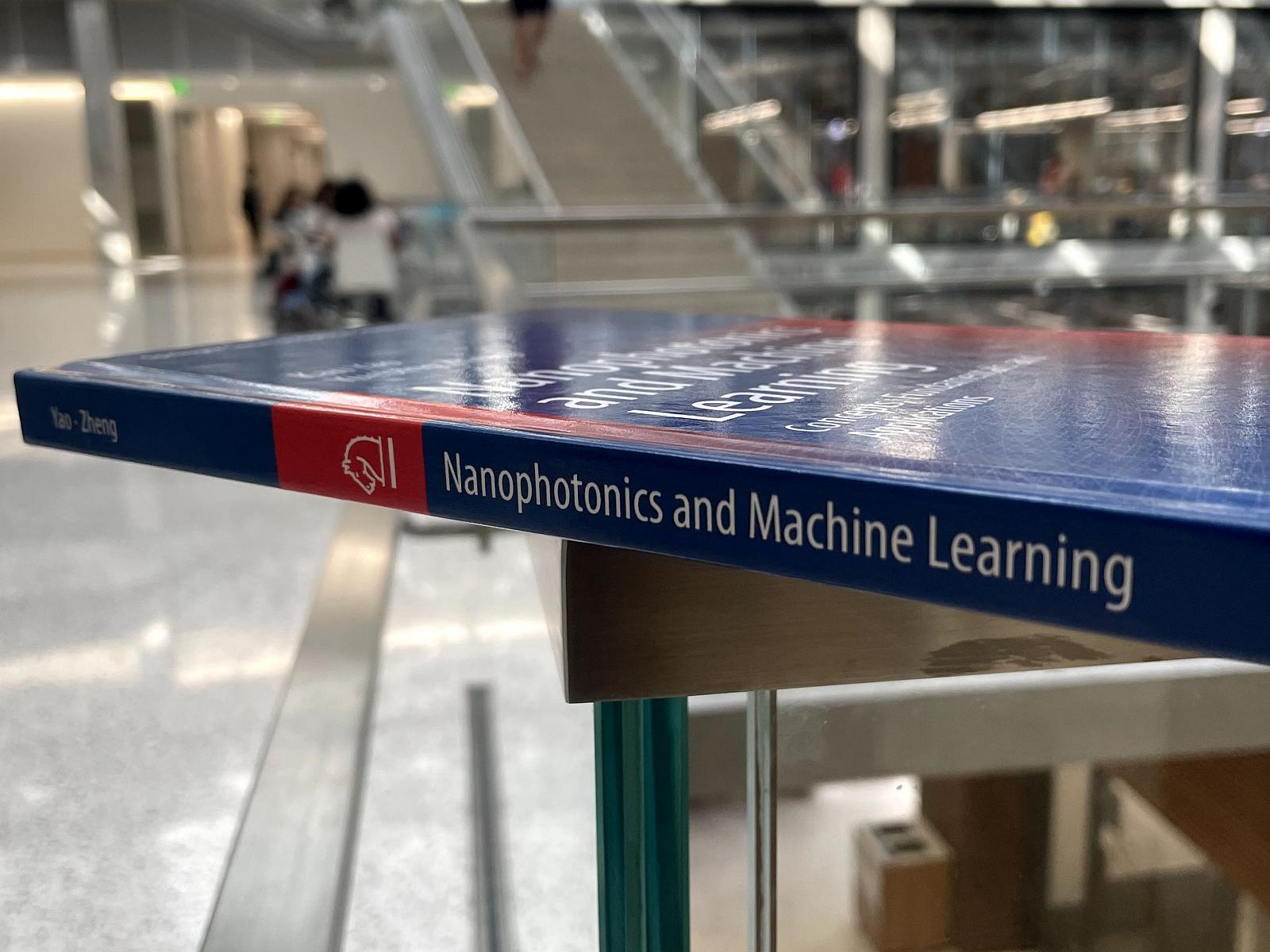
5 Questions with Yuebing Zheng, Author of New Book on Nanophotonics
How light interacts with matter is one of the most basic, yet important branches of science. A growing area in this field is nanophotonics, which studies these interactions at the smallest of scales where material building blocks begin to exhibit dynamic properties.
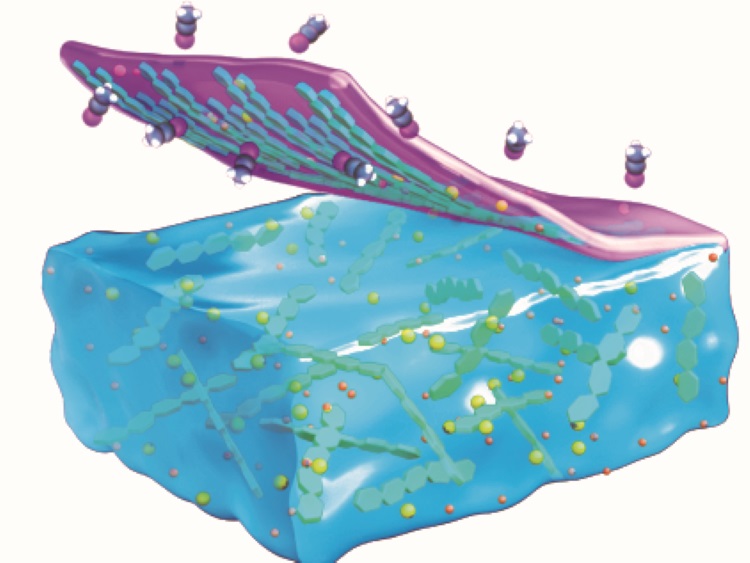
Milk Reaction Inspires New Way to Make Highly Conductive Gel Films
A common chemical reaction that most people have seen first-hand is the inspiration for a new way to make a flexible gel film that could lead to innovations in sensors, batteries, robotics and more.
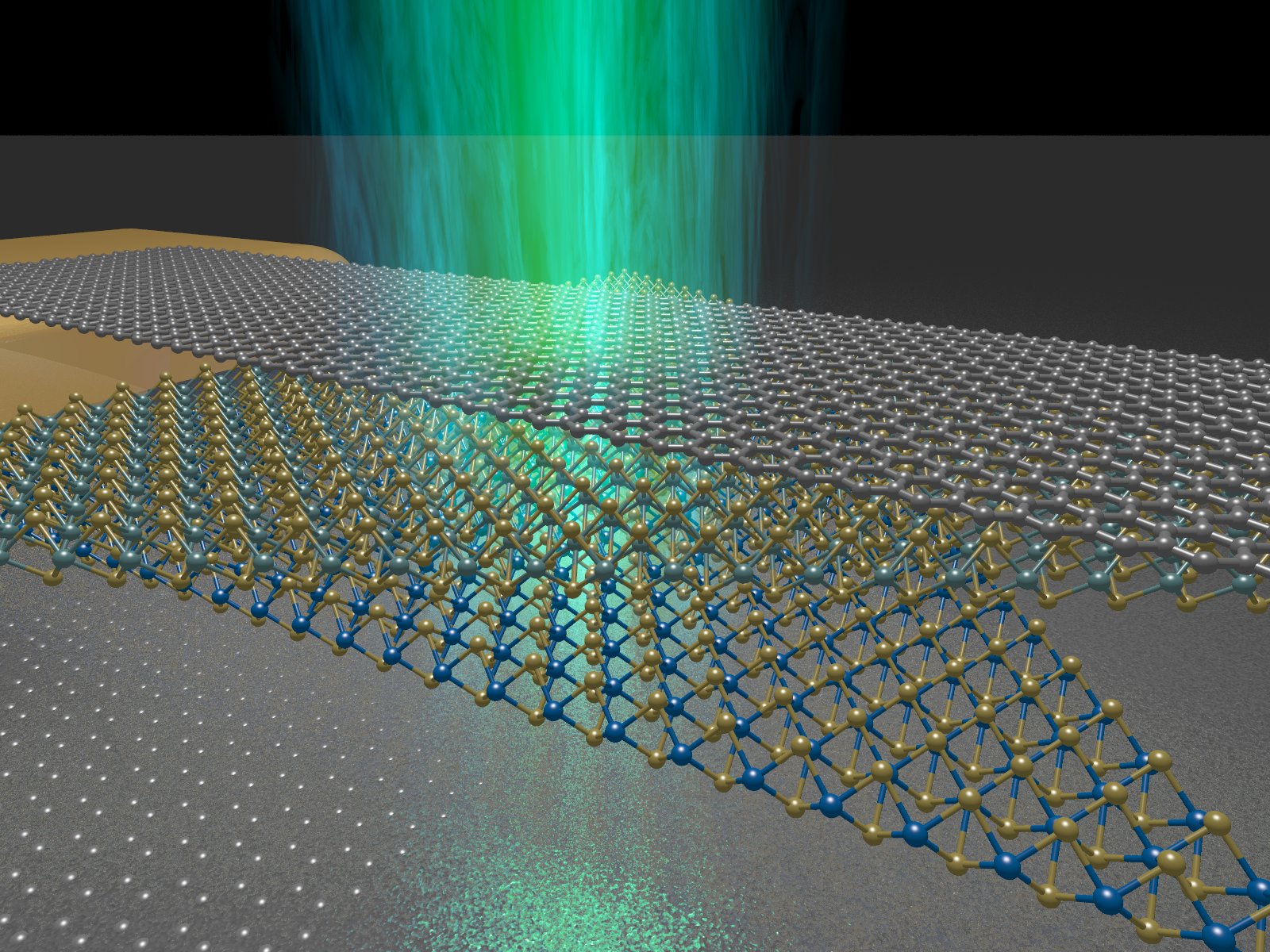
2D Artificial Neurons Mimic Complex Brain Abilities for Next-Gen AI Computing
Research published in Nature Nanotechnology shows the creation of atomically thin artificial neurons by stacking two-dimensional (2D) materials to expand the functionality of electronic memristors by making them responsive to both optical and electrical signals for the operation of winner-take-all neural networks with separate feedforward and feedback paths within the network.
Page 35 of 36
Texas Materials Seminar Series
The Texas Materials Seminar Series features MSE 397 Seminars, TMI Distinguished Lectureships, and TMI Special Seminars, where leading faculty and professionals from around the world share cutting-edge innovations and advancements in materials engineering with our students.
Learn More
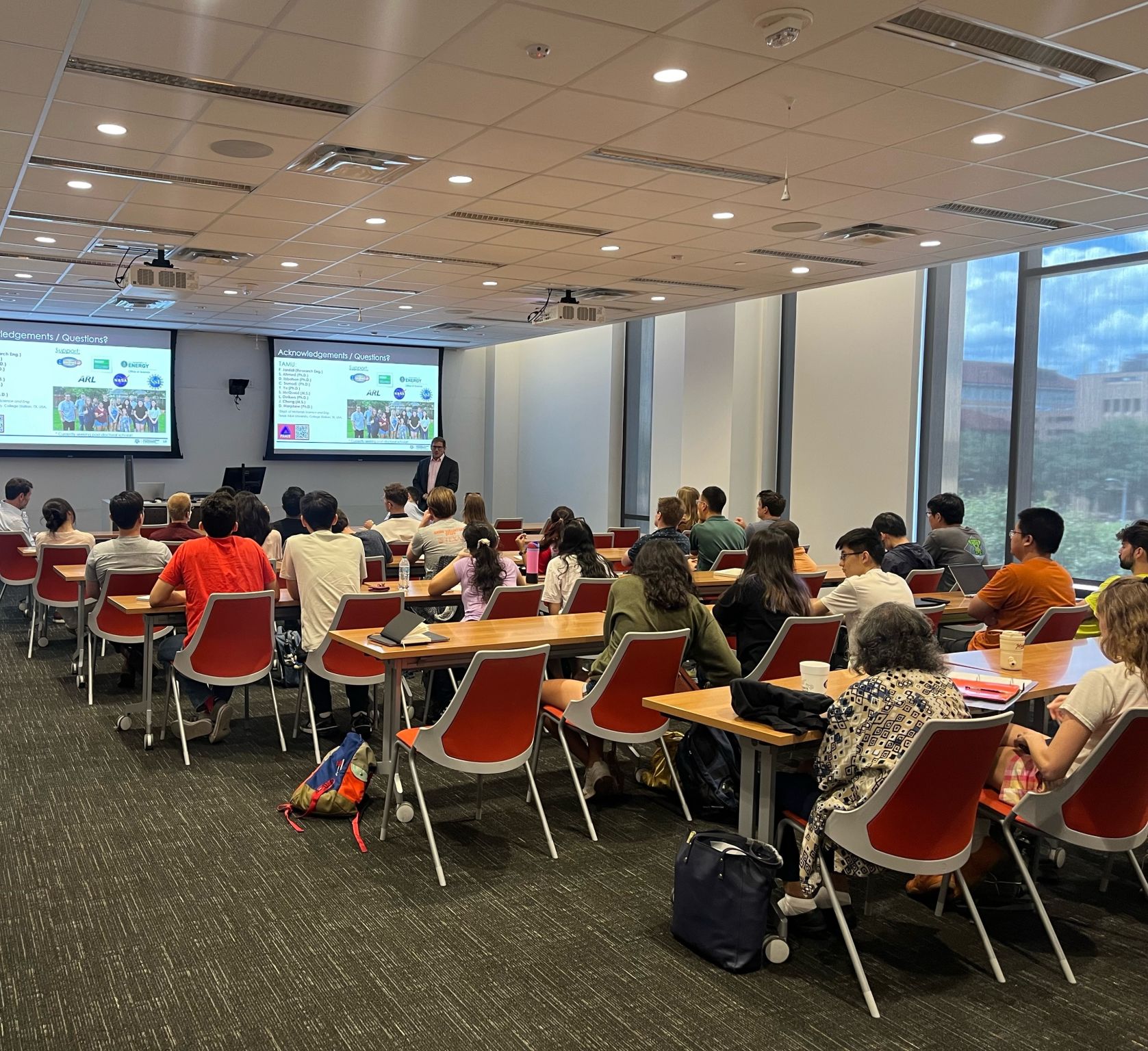
News
Ultrasound-based Drug Delivery Method Could Lead to Safer, Targeted Treatments

A new ultrasound technology developed by researchers from The University of Texas at Austin can activate drugs delivered to targeted cells or parts of the body, a leap forward in the ability to control interactions between molecules for enhanced treatments.
Why Your Headphone Battery Doesn’t Last

AUSTIN, Texas — Ever notice that batteries in electronics don’t last as long as they did when they were brand new?
An international research team led by The University of Texas at Austin took on this well-known battery challenge, called degradation, with a twist. They’re focusing their work on real-world technology that many of us use daily: wireless earbuds. They deployed X-ray, infrared and other imaging technologies to understand the complexities of all the technology packed in these tiny devices and learn why their battery lives erode over time.
ME Advisor of the Year Award Recognizes Tanya Hutter

At the recent Mechanical Engineering faculty meeting, the Mechanical Engineering Graduate Student Board (MEGSB) awarded the Advisor of the Year honor to Tanya Hutter. This recognition highlights her exceptional mentorship and support of graduate students.
Dr. Zachariah A. Page Receives Presidential Early Career Award (PECASE)

Dr. Zachariah A. Page has been awarded the Presidential Early Career Award for Scientists and Engineers (PECASE), one of the highest honors for early-career scientists. Announced by President Joe Biden on January 14, 2025, the award celebrates Dr. Page’s innovative research in chemistry, along with his continued exploration in the broad fields of macromolecular synthesis and materials science.
2025 Hill Prize in Physical Sciences: James Chelikowsky

Chelikowsky, who is a professor of physics, chemical engineering and part of the Oden Institute for Computational Engineering and Sciences, has been awarded the 2025 Hill Prize in Physical Sciences for his innovative approach to designing and discovering permanent magnets.
$12M+
In Grant Funding
20+
Research Patents
10K+

